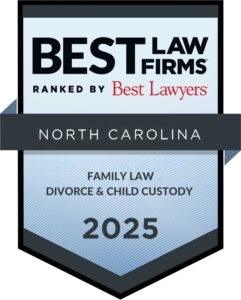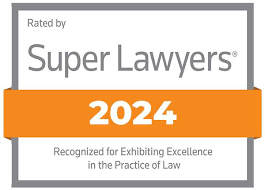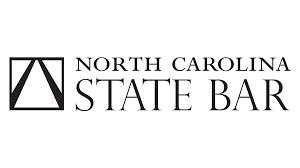Business Valuation in North Carolina Divorce
Quick answer: How are businesses valued in a North Carolina divorce? Courts classify the company (marital, separate, or mixed), then determine value—often as of the date of separation—using accepted methods (income, market, or asset approach). Experts make normalization adjustments to owner pay and expenses, separate enterprise from personal goodwill, and account for post-separation changes as divisible property when appropriate. The result informs equitable distribution by buyout, offset, or co-ownership safeguards.
Get the number right. We build business valuation cases that hold up—clean discovery, neutral or party experts, workable buyouts, and orders that banks and plan administrators can follow.

Your North Carolina Business Valuation Divorce Lawyer
Krispen Culbertson, North Carolina family lawyer with 20+ years handling valuation issues in equitable distribution: expert selection, discovery, normalization of income, enterprise vs. personal goodwill, buyouts, and tax-smart settlements.
Memberships: North Carolina State Bar; local family law sections. Courts: District Court calendars statewide with regular hearings in Guilford County.
Start by situation
Fast answers
Valuation date: In North Carolina, marital business value is generally measured near the date of separation; some post-separation changes are handled as divisible property.
Goodwill matters: Enterprise goodwill can count; personal goodwill tied to an owner’s reputation may not be marital value.
Normalization: Adjust owner salary, one-time costs, and perquisites so earnings reflect market reality.
Protect cash flow: Temporary orders can stop waste, preserve records, and keep payroll and taxes current while the case proceeds.
Classify, value, and divide the company
We first determine whether the business interest is marital, separate, or mixed. Then we value it—typically as of the date of separation—and address post-separation changes as divisible property when the law allows. Distribution options include an offset with other assets, a structured buyout, or safeguarded co-ownership in rare cases.
Choosing the valuation approach
- Income approach: capitalized earnings or discounted cash flow for stable, profitable companies.
- Market approach: guideline company or transaction multiples for comparable industries.
- Asset approach: net asset value for holding companies or distressed operations.
Normalization & owner compensation
Experts adjust for owner salary above/below market, related-party rent, non-recurring expenses, and personal expenses. We assemble proof for each adjustment and prevent double counting later in support.
Enterprise vs. personal goodwill
Enterprise goodwill (brand, systems, location, workforce) can be included in marital value. Personal goodwill (owner’s skills and relationships) is often treated separately. We frame the evidence so the right goodwill bucket is used.
Discovery & documents
- Tax returns (business & personal) with schedules; financial statements (P&L, balance sheets, cash flow)
- Bank/merchant statements; general ledger; AR/AP aging; payroll summaries
- Customer concentration, vendor contracts, leases, insurance, licenses
- Cap tables, buy-sell agreements, shareholder or operating agreements
- For professional practices: patient/engagement metrics and referral sources (de-identified)
Neutral vs. dueling experts
We help choose a neutral valuation for efficiency or prepare party experts when issues are disputed (CVA, ASA, ABV, CPA). Reports are written for court—replicable methods, sourced multiples, and transparent adjustments.
Buyouts, offsets & security
When one spouse keeps the company, the other may receive an offset or installment buyout with interest, security (UCC or deed of trust), benchmarks, and remedies. We avoid terms that choke the business.
Taxes, benefits & settlement
We coordinate valuation with alimony, child support, and retirement/QDRO planning to prevent double-dipping. For pass-through entities, we account for tax distributions vs. compensation and model after-tax outcomes.
What to bring and your first 72 hours
Document checklist
- 3 years of business & personal tax returns; YTD financials
- Bank/merchant statements; payroll reports; general ledger
- Leases, insurance, licenses, buy-sell/operating agreements
- Customer/vendor summaries; any recent appraisals or offers
Your first 72 hours with our team
1) Classification & date
Confirm marital/mixed status and valuation date.
2) Discovery plan
Issue requests/subpoenas; preserve ESI and accounting access.
3) Expert strategy
Neutral vs. party expert; scope, method, and deadlines.
4) Interim protections
Status-quo orders, reporting, and no-waste provisions.
5) Settlement map
Offset or buyout structure with tax and cash-flow modeling.
Related: Equitable Distribution • Tax, Retirement & QDRO • Alimony • Mediation & Settlement
FAQs
What is the business valuation process in a North Carolina divorce?
Do we have to use the same expert?
How are personal and enterprise goodwill treated?
Can a spouse hide income through the company?
What if records are incomplete?
Why North Carolina families choose Culbertson & Associates
- 20+ years litigating NC business valuation disputes
- Experts (CVA/ASA/ABV/CPA) who write court-ready reports
- Buyouts that protect both cash flow and fairness
- Clean orders banks and agencies will follow
Client reviews
C. Willis — “They explained goodwill and add-backs so I finally understood the number. Fair buyout, business kept running.”
N. Parker — “Krispen coordinated with a CPA/ABV and the report held up in court. Clear, steady, and professional.”
M. Diaz — “We used a neutral expert to save time. Settlement used a secure note with benchmarks—no drama.”
J. Patel — “Owner perks were normalized and the judge accepted the analysis. The plan worked for both sides.”
S. O’Neal — “Practical strategy, strong evidence, and an order the bank followed the next week.”
R. Kim — “Culbertson & Associates kept the focus on facts. We closed with a balanced offset and no trial.”
Visit Our Greensboro Office
Culbertson & Associates
315 Spring Garden St Ste #300, Greensboro, NC 27401
(336) 272-4299 • culbertsonatlaw.com
Hours: Mon–Fri 8:30 AM–5:00 PM • Area served: North Carolina


Contact us now
book consultation







No Comments
Sorry, the comment form is closed at this time.